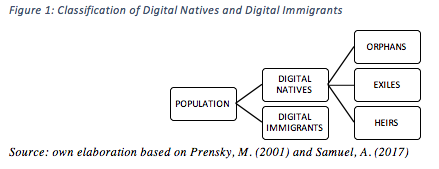The Digital and green transition has undoubtedly transformed the labour market, bringing challenges and opportunities for workers. As industries and economies evolve, a growing demand for new skills aligns with this changing environment. The European Year of Skills was launched to enhance competitiveness and invest in education and skills development in response to this need. The main focus is to ensure that workers acquire the skills required in the labour market, particularly in digital skills. One of the critical aspects of the European Year of Skills is to support young people in actively participating in educational programmes. Emphasising education is crucial for young individuals to bridge the gap between their current skills and the evolving demands of the labour market.
In today’s digital age, specific skills are essential for individuals in most industries. Basic digital literacy, including fundamental computer skills and proficiency in software applications, is an absolute requirement. In the 21st century, individuals need to possess the skills to navigate emerging technologies and social media platforms adeptly. This includes blending fundamental knowledge with problem-solving abilities, efficiently handling cloud computing and data storage, and embracing digital citizenship responsibilities. A valuable digital citizen collaborates, interacts, and adds value to the collective intelligence of the online community by fostering positive and non-toxic content and interactions.
In 2001, Prensky[1] introduced the concept of “digital natives,” which is used to describe the generation that has grown up surrounded by digital (or information) technologies in their everyday lives (typically individuals born after 1980). The second group is called “digital immigrants,” representing the generation born before the widespread adoption of digital technologies. They were not surrounded by them from childhood but encountered them later in life. Digital natives, in contrast to digital immigrants, generally excel in working and interacting with digital technologies, quickly absorb information, manage to multitask, prefer graphical representation of information over text, and perform best when connected to the internet. The proportion of the overall indicator of advanced digital skills exceeds 80% among young people (digital natives) and 60% among the older population (digital immigrants). Moreover, there is a massive gap in the level of digital skills among EU member states (e.g., Netherlands (78%) and Romania (22%).
In 2017, Alexandra Samuel[2] expanded this theory to include additional types of “digital natives,” distinguishing between orphans, exiles, and heirs.Digital orphans need more guidance despite abundant tech access. Raised by parents who provide unlimited technology access, these individuals receive little conversation about the significance of their digital experiences.
 Digital exiles have minimal tech exposure due to their parents’ intent to delay their digital entry until their teenage years. This approach aims to ensure the children respect parental advice. Consequently, some exiles may fervently immerse themselves in online activities, facing challenges in maintaining a balanced relationship with technology. In contrast, digital heirs possess impressive tech skills due to their parents’ and teachers’ support and guidance. These adult mentors actively promote responsible internet usage by enrolling them in classes and engaging in meaningful conversations. It is evident, then, that the level of digital skills will also vary across the generation of young people today.
Digital exiles have minimal tech exposure due to their parents’ intent to delay their digital entry until their teenage years. This approach aims to ensure the children respect parental advice. Consequently, some exiles may fervently immerse themselves in online activities, facing challenges in maintaining a balanced relationship with technology. In contrast, digital heirs possess impressive tech skills due to their parents’ and teachers’ support and guidance. These adult mentors actively promote responsible internet usage by enrolling them in classes and engaging in meaningful conversations. It is evident, then, that the level of digital skills will also vary across the generation of young people today.
For this reason, the Digital Education Action Plan (2021-2027) represents a renewed policy initiative by the European Union (EU) that outlines a shared vision for achieving high-quality, inclusive, and easily accessible digital education across Europe. Its primary objective is to facilitate the adaptation of education and training systems in EU Member States to meet the demands of the digital era.
In today’s rapidly advancing digital landscape, developing digital skills is paramount for individuals of all ages. However, young people, as digital natives, hold a distinct advantage over older generations in this domain. Growing up surrounded by technology, they possess a natural familiarity and comfort with digital tools and platforms. This advantage enables them to adapt quickly to new technologies, acquire digital skills more effortlessly, and leverage these skills to thrive in various aspects of life, including education, employment, and social interaction. Bridging the digital skills gap between generations is crucial to ensure equitable access to opportunities and empower individuals of all ages in our increasingly digital world.
by Martina Kubíková, IREAS Institute for Structural Policy, Lost Millennials project
[1]Prensky, M. (2001). “Digital Natives, Digital Immigrants”. In On the Horizon, October 2001, 9 (5). Lincoln: NCB University Press.
[2]Samuel, A. (2017) Opinion: Forget ‘digital natives.’ here’s how kids are really using theinternet, ideas.ted.com. Available at: https://ideas.ted.com/opinion-forget-digital-natives-heres-how-kids-are-really-using-the-internet/ (Accessed: 04June 2023).


